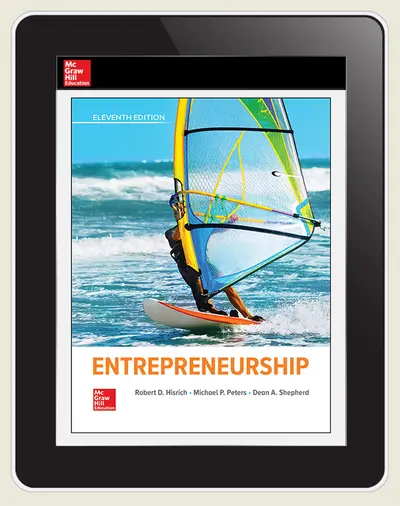Robert Hisrich
Robert D. Hisrich is the Garvin Professor of Global Entrepreneurship and Director of the Walker Center for Global Entrepreneurship at Thunderbird. He is also president of H&B Associates, a marketing and management consulting firm he founded.
Professor Hisrich received his B.A. from DePauw University, his MBA and Ph.D. degrees from the University of Cincinnati, and honorary doctorate degrees from Chuvash State University (Russia) and the University of Miskolc (Hungary). Prior to joining Thunderbird, Dr. Hisrich held the A. Malachi Mixon, III Chaired Professor of Entrepreneurial Studies at the Weatherhead School of Management, Case Western Reserve University. Dr. Hisrich was a Fulbright Professor at the International Management Center in Budapest, Hungary in 1989. In 1990-91, he was again named a Fulbright Professor in Budapest at the Foundation for Small Enterprise Economic Development, where he also held the Alexander Hamilton Chair in Entrepreneurship. Dr. Hisrich has held visiting professorships at the University of Ljubljana (Slovenia), the Technical University of Vienna (Austria), the University of Limerick (Ireland), the Queensland University of Technology (Australia), The University of Puerto Rico, and the Massachusetts Institute of Technology.
He has authored or co-authored twenty-five books, including Entrepreneurship: Starting, Developing, and Managing a New Enterprise (translated into nine languages and now in its seventh edition), The 13 Biggest Mistakes that Derail Small Businesses and How to Avoid Them and Marketing. Dr. Hisrich has written over 300 articles on entrepreneurship, international business management, and venture capital, which have appeared in such journals as The Academy of Management Review, California Management Review, Columbia Journal of World Business, Journal of Business Venturing, Sloan Management Review, and Small Business Economics. He has served on the editorial boards of The Journal of Business Venturing, Entrepreneurship Theory and Practice, Journal of Small Business Management, and Journal of International Business and Entrepreneurship. Besides designing and delivering management and entrepreneurship programs to U.S. and foreign businesses and governments, particularly in transition economies, Dr. Hisrich has instituted academic and training programs, such as the university/industry training program in Hungary, a high school teachers entrepreneurship training program in Russia, an Institute of International Entrepreneurship and Management in Russia, and an Entrepreneurship Center in Ukraine.
Michael Peters
Michael P. Peters is a Professor Emeritus at the Marketing Department at Carroll School of Management, Boston College. He has his Ph.D. from the University of Massachusetts, Amherst, and his MBA and B.S. from Northeastern University. Presently retired from full-time teaching, Professor Peters has been a visiting professor at the American College of Greece’s Graduate School of Business in Athens, Greece. There he developed an entrepreneurship and business planning component in its MBA program. In addition, he continues to write, lecture, serve on numerous boards, and assist in the management of a family business. Besides his passion for assisting American entrepreneurs in new ventures, he has consulted and conducted seminars and workshops worldwide, related to entrepreneurship, international and domestic decision-making for new product development, market planning, and market strategy. He has published over 30 articles in journals, such as the Journal Business Research, Journal of Marketing, Journal of Marketing Research, Journal of International Business Studies, Columbia Journal of World Business, Journal of Business Venturing, and Sloan Management Review. He has coauthored three texts, Marketing a New Product: Its Planning, Development and Control; Marketing Decisions for New and Mature Products; and Entrepreneurship, now in its 11th edition. He was Department Chair and Director of the Small Business Institute at Boston College for more than 16 years. He loves photography, tennis, golf, and kayaking on Cape Cod Bay.
Dean Shepherd
Dean Shepherd is the Ray and Milann Siegfried Professor of Entrepreneurship at the Mendoza College of Business, Notre Dame University. He received his doctorate and MBA from Bond University (Australia). His research and teaching is in the field of entrepreneurship. He investigates both the decision-making involved in leveraging cognitive and other resources to act on opportunities, and the processes of learning from experimentation (including failure), in ways that ultimately lead to high levels of individual and organizational performance. Professor Shepherd has published papers primarily in the top entrepreneurship, general management, strategic management, operations management, and psychology journals, and has written (or edited) over 20 books.

























































Social Studies
View all Social Studies Programs
IMPACT (K–5)
Actively Learn (3–12)
New Social Studies (6–12)
Networks (6–12)